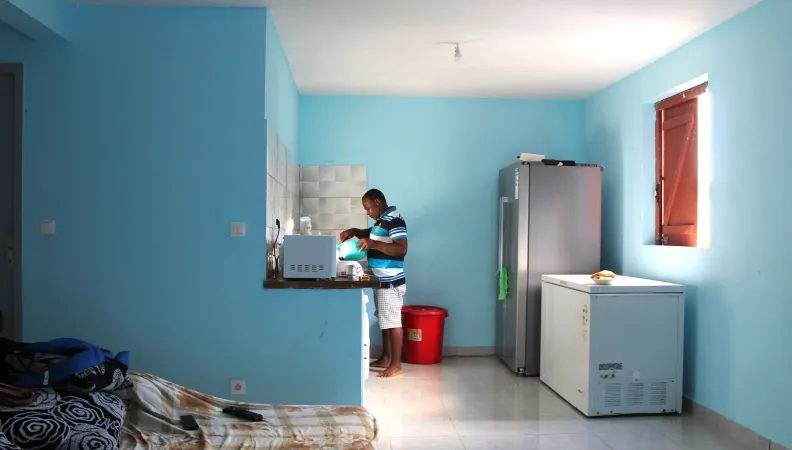Share the page
Abating Greenhouse Gas Emissions from Obsolete RAC equipmenttiseurs domestiques (AGORA)
Project


-
Project start date
-
Status
In progress
-
Estimated date of project termination
-
-
Project financing date
-
-
Financing duration
-
4 years
-
Type of program
-
FFEM
-
Global financing amount
-
9840000 €
-
FFEM financing amount
-
2485000 €
-
Project lead member institution(s)
-
Ministry of the Ecological Transition, Biodiversity, Forests, Sea and Fisheries
-
Country and region
-
West Africa, Nigeria
-
Type of financing
-
Grant
-
Beneficiaries
-
UNDP
-
Type of beneficiary
-
International organisation



Domestic refrigerators and air conditioning can be highly emissive of greenhouse gases. To reduce their impact on the climate, the FFEM is supporting the Agora project, sponsored by the UNDP. The goal: encouraging the purchase of less polluting equipment in Ghana and Nigeria.
Context
Ghana and Nigeria are faced with rising demand for domestic refrigeration and air-conditioning. This upward trend and its envi-ronmental impact needs to be managed, as domestic refrigerators and air conditioners (RAC) can be major greenhouse gas emitters. In order to respond to demand while preserving the climate, the Ghanaian government has put in place a system of discounts and rebates with the objective of encouraging consumers to acquire new and more environmentally-friendly equip-ments, and to reduce the use of older, more polluting systems.
In supporting the Agora project, the FFEM is continuing and building upon its work in Ghana and replicating it in other West African countries, in particular Nigeria.
Description
The project has three components:
- Implementing or strengthening policies, regulations and partnerships to ensure the success of the rebate/discount sys-tem.
- Leading campaigns for communication and awareness raising in order to build the scale and impact of these re-bate/discount programmes.
- Encouraging cooperation within the Global South through sharing good practices with other countries.
Impacts
- Reducing the effect of greenhouse gas emissions in the cooling sector in Ghana and Nigeria.
- Phasing-out of old refrigeration and air-conditioning equipments.
- In the medium term, steering the RAC equipment market toward equipment that is more energy efficient and uses natural refrigerants through the rebate/discount policy.
- Circulating the rebate/discount mechanisms and their adoption in other countries.
Exemplary and innovative characteristic
The Agora project stands out for its global approach. The implementation of self-sustaining market mechanisms contributes to the sustainable transformation of the refrigeration and air-conditioning market. The multi-country approach is another strong point: Agora encourages the exchange of expertise between Ghana and Nigeria, as well as across the whole of West Africa.
Sustainable Development Goals
ODD7 Affordable and clean energy

ODD12 Responsible consumption and production

ODD13 Climate action



